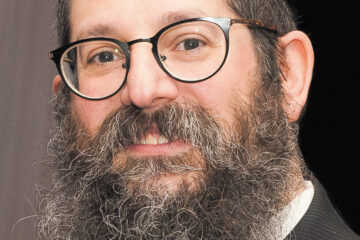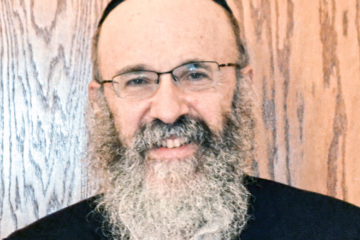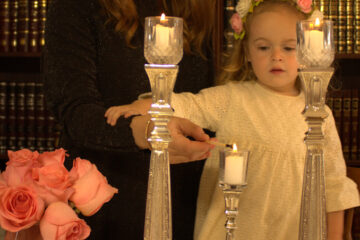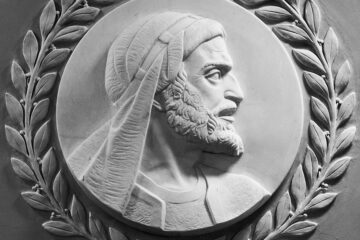One shofar, many faces

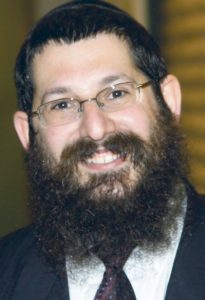
By Rabbi Nochum Mangel, Chabad of Greater Dayton
The high point of Rosh Hashanah and the unique mitzvah (commandment) of the day is the blowing of the shofar. The words of the holiday prayer book are deep and their extraordinary poetry is beautiful and moving, but the focus of the day is on the raw sound of the ram’s horn’s three basic notes.
What is its significance? As a simple matter of law, it is a mitzvah that the Torah instructs us to do, calling Rosh Hashanah Yom Teruah, a day of the sounding of the shofar. The Torah does not offer us a reason. It only gives us the command to sound the shofar.
But over the course of our long history, many have offered various meanings behind this mitzvah.
Hai Gaon, a rabbi who lived during the early 11th century, compiled 10 widely-cited reasons behind the mitzvah of blowing the shofar. Among them are:
• The shofar was sounded at a king’s coronation, and on Rosh Hashanah we are proclaiming God as our king just as Adam and Eve did on the sixth day of creation, the first Rosh Hashanah.
• When Abraham and Isaac showed their willingness to give up everything to follow God at the time of the Binding of Isaac, God directed Abraham to take a ram caught in a thicket and offer it instead, and the horn of the ram was to be used as a shofar. The shofar reminds us of the self-sacrificial dedication of the founders of our people.
• When all of Israel stood at Sinai and God gave them the Torah, everyone heard the sound of the shofar blowing. Hearing the shofar reminds us of God’s giving us the Torah.
• When Moshiach (Messiah) comes, the prophet Elijah tells us, the great shofar will be blown. Blowing the shofar speaks to us of the coming of the Moshiach and the great good toward which the world is moving.
One hundred years later, Maimonides added that the sound of the shofar moves us to return to God. It is like a voice calling, “Wake up, you sleepers, and return to your real purpose, the purpose why you are here in the world.”
But one might ask, why does our tradition propose so many different and diverse reasons for this mitzvah? Wouldn’t one be enough?
In Midrash Rabba, our sages teach that discovering many explanations for a mitzvah is not something unique to the mitzvah of shofar. Rather, as a general Torah principal, Shivim panim laTorah — the Torah has 70 different faces, or aspects. Each and every matter in Torah can be understood through a prism that reveals 70 different colors.
The rabbis of the Talmud are saying that the necessity for so many different faces is: “Just as no person’s face looks exactly like another’s, so too, no two people’s sensibilities are exactly the same.”
Seventy, then, is a number to express the variety of the whole group. The message is that the Torah offers a path of understanding to each person as unique as the person’s face.
So although people say that if you have two Jews, you have three opinions, they are off by 67!
The strength and beauty of Torah is that although there are diverse insights and varied rationales, they are all simultaneously true.
But the commonality is the performance of the same mitzvah. No matter which of the 70 reasons one finds most compelling, each person speaks of the same mitzvah of hearing the shofar.
The mitzvah is the same, but each of us sees in it a different color, a different point of meaning. Each perspective is necessary in order for there to be a door and an opening into the Torah and mitzvot for all.
What draws one person is very often not what draws another. Therefore, there is the widest diversity of insight so that each person can find his or her way to the core where we are all one.
There is room for each one of us. In Torah learning, it is not about winning arguments or trying to prove our understanding is right by denying others their unique insight or inspiration. There is a purpose in our differences. Each one of us has a way to connect and join with everyone else in the mitzvah.
The shofar urges us, cries to us — do not stop until you have found your inspiration. We are meant to hear that sound together, as we come as one to be blessed by being written and sealed together in the Book of Life for a year of peace, plenty, and every kind of blessing.
May we finally hear the great sound of Elijah’s shofar, heralding the arrival of the righteous Moshiach.
To read the complete September 2018 Dayton Jewish Observer, click here.


